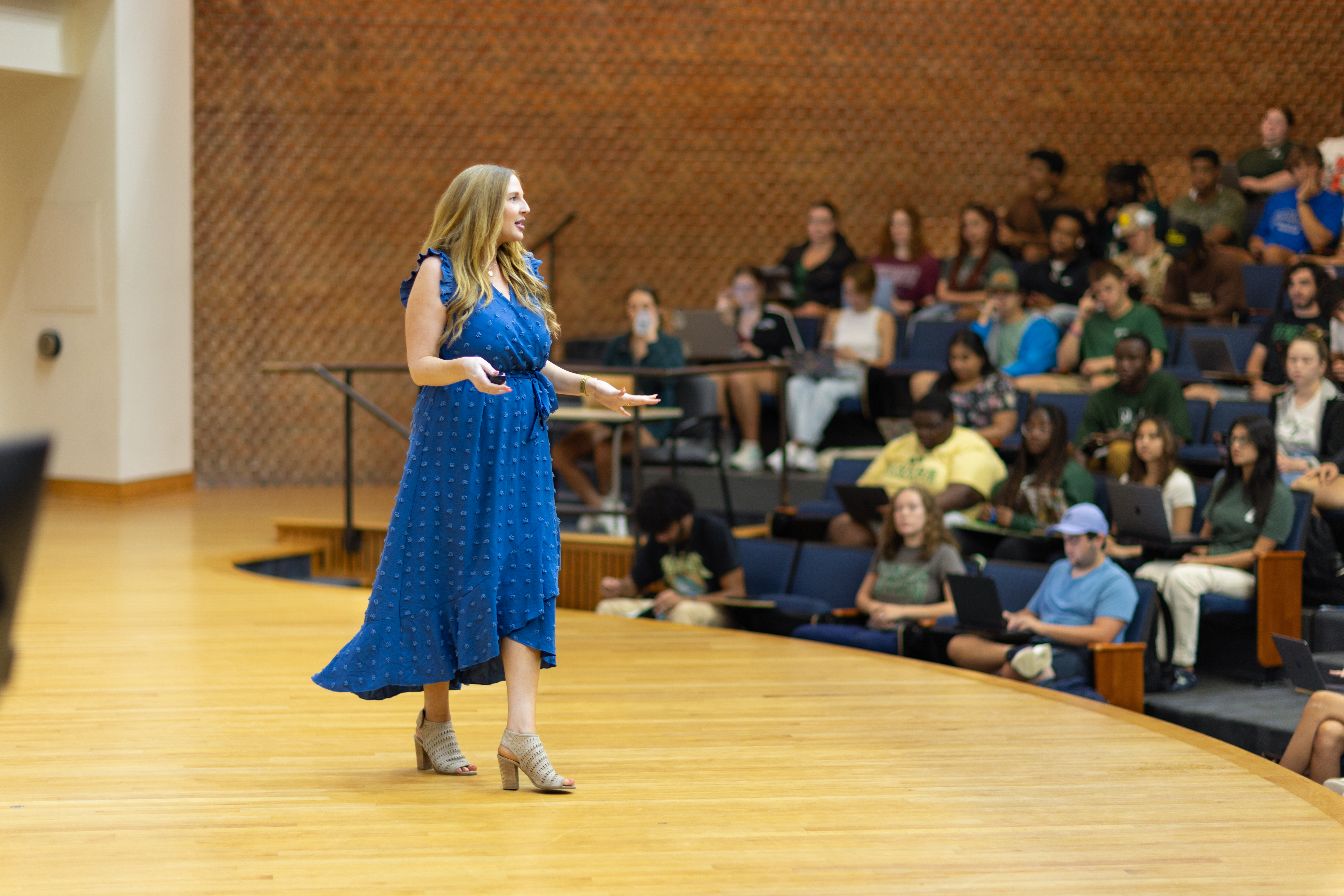Teaching

teaching
university commitment
Through course offerings and degree programs, the university seeks to ground students in the concepts and principles of sustainability, such as the interactions between society, economy, and environment. Understanding how to create sustainable communities and businesses supports students in their careers and as citizens.
Requirements to teach sustainability come from accreditors, professional societies, and internal goals. The following colleges at UNC Charlotte include sustainability principles in their long-term strategic planning:
- The College of Engineering has responded to the ABET Student Outcomes requirement to understand “the impact of engineering solutions in a global, economic, environmental and societal context.”
- The College of Arts and Architecture Strategic Plan includes a goal to “Develop curricula and advance research, creative practices, and projects that address the 17 United Nations Sustainable Development Goals.”
- The College of Humanities & Earth and Social Sciences Strategic Plan includes a goal to “Launch a nationally recognized, interdisciplinary research hub or center focused on critical human and environmental problems relevant to the Charlotte region and the world.”
A desire to teach sustainability can also arise from individual instructors and departments. Sustainability topics can serve to update the curriculum on modern and emerging issues, engage and recruit students, and support high-impact practices for civic engagement with community partners and service learning projects.
teacher support
Resources
The University subscribes to two organizations with general resources.
- The Association for the Advancement of Sustainability in Higher Education (AASHE) provides a clearinghouse of information on campus sustainability, including a focus on resources for faculty. AASHE supports online discussion communities, webinars, searchable publications hub, and a mentoring program that can match you with a peer from another institution. For example, the maintain a list from the Disciplinary Associations Network for Sustainability (DANS) that compiles resources for 19 categories of academic disciplines.
- The US Green Building Council (USGBC) has over 900 online courses, of which the university’s subscription includes unlimited access to and use of these teaching materials. In some fields, the USGBC badges and certifications may serve as faculty professional development or student career preparation.
Note: For both AASHE and USGBC you will need to set up a personal account using your campus email address in order to gain full access to materials.
Workshops
The Office of Sustainability organizes “Sustainability in the Curriculum” workshops for teaching faculty. Since 2015, trainers (experienced UNC Charlotte faculty) have led the multi-day workshop each Spring. Over 100 faculty participants have earned stipends for incorporating sustainability concepts into their courses and degree programs. Participants also benefit from networking across disciplines, sharing ideas, and discovering new resources and pathways to teach. For more information and to get on our email list for faculty opportunities, please see the workshop flyer for May 2026 applications or contact the Office of Sustainability at sustainability@charlotte.edu.
Faculty are also encouraged to apply to the Sustainability Ambassador Program, a professional development program designed to help promote a culture of sustainability on campus. Participants complete a project, which could focus on teaching.
Guest Lectures
Our staff are available for guest lectures, class discussions, and campus tours. The focus can be general campus goals and performance, or specific topics that align with a course. The tours are a way to incorporate the physical campus into your teaching, and common themes include recycling, Toby Creek restoration, green buildings, and transportation.
If you wish to discuss teaching ideas or the above services, please contact us at sustainability@charlotte.edu.